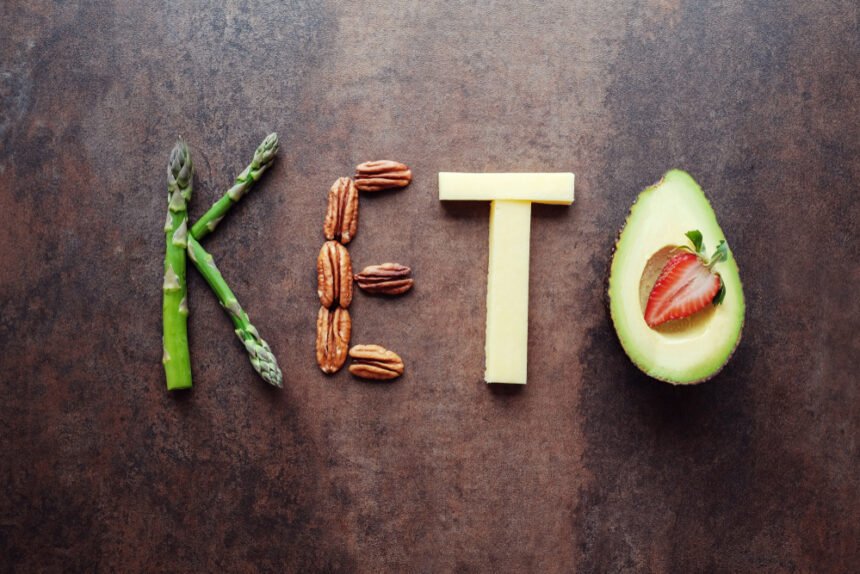So, what?s a Keto diet anyway? Well, keto is short for ketogenic, and refers to a low carb, high fat, moderate protein diet that purports putting the body in a metabolic state referred to as ketosis. During ketosis, the liver produces ketones, which ideally become the main source of fuel (energy) for the body rather than glucose obtained from carbs. While this might seem like just another fad diet, it has actually been around since it was first developed in the 1920s as a treatment for epilepsy. It?s actually used as treatment even today, though its benefits in weight loss are widely debated. Similar to the Atkins diet, it cousin, Keto only requires you to take small portions of veggies and fruits but plenty of healthy fats and proteins. Part of the popularity for the diet is its emphasis on foods like bacon, steak, and avocado, all of which taste great and leave you feeling fill. Take a look at this keto diet food list. Although you have to say goodbye to eating pasta and steak, the keto diet is clearly not about full deprivation. The following are some of the things you need to know before getting started. Forget about Carbs and Sugar One of the core components of the keto diet is nixing sugar (including natural ones like agave and maple), grains, fruit (except berries and avocado, in moderation), legumes, and starchy vegetables. You can eat? Where the diet lacks in sugar and carbs, it makes up for with delicious proteins and healthy fats. Foods that are ok to eat include fish, meat, eggs, cheese, avocado, butter, nuts, cauliflower, leafy greens, sweeteners like stevia, and saturated fats (yes, you can toss a fatty dressing in your kale salad). Do the Math Although you can just dive into the diet, if you truly want to follow it, you need to calculate your macronutrients (macros). This ideally helps you figure out the amount of carbs, fats, and protein you need to consume in order to lose weight on diet based on your height, age, activity level, weight, etc. There are lots of macro calculators available online for this. Basically, if you really want to keep up with the keto diet, tracking what you eat on a daily basis is recommended, especially when starting out. Measure your Ketones When starting out, you may also want to measure your ketones to ensure that you?re on your way towards reaching ketosis. Blood sugar monitors and urine strips are two possible methods. At First, Some Pounds May Fly Off? If you follow the diet, you?ll most likely lose a lot of weight quickly. Some people have actually lost up to 20 pounds in their first week. And while it could be super inspiring to continue, keep in mind that this is actually a drop in water weight, and you won?t continue losing pounds at that rate. Stick with The Diet Following the initial shedding period, the rate of weight loss may slow down significantly. That?s ok. As your body becomes acquainted with the diet, you will continue lose weight over time; which is in many ways more sustainable and healthier than losing so much weight at overnight. Commit If you?re considering going keto, you must commit. Since it?s all about achieving ketosis, going on and off can confuse the body (yes, even for that one ?cheat? bite of pizza), and cause you to gain weight. Keto diehard fans consider it more of a lifestyle than a diet. Supplement Since the diet involves cutting a lots of veggies and fruits, it?s likely that you?ll need to take vitamin supplements to supplement your diets and stay healthy. Don?t Worry, The Cravings Will Ease When you cut sugar and carbs from your diet, you?ll most likely go through a phase of craving them more than ever. However, if you can successfully stick with it, the keto diet will quell the cravings (at least according to keto advocates), and soon you won?t be drooling every time you come across a hamburger bun. Stay Hydrated On a keto diet, you?ll lose lots of water, especially the first few days. So, it?s crucial to take lots of water to stay hydrated. You may have to drink more than you?re used to since you?ll be changing the way your body functions. Be sure to increase your salt intake as well to help retain the water and avoid dehydration. Be Wary of the Side Effects There are quite a number of known side effects of the keto diet. Although its advocates claim that these serve as a sign the diet is working, some can be rather unpleasant. At first, the common side effects include dehydration, increased urination, dry mouth, constipation, brain fog, cramps, lethargy, bad breath, headaches, and the Keto flu, which is basically flu-like symptoms experienced as the body adjusts to the new diet. Remember to Exercise Just as with any other diet program, your diet shouldn?t be the only change. Maintaining at least an exercise routine of moderate intensity is the best way to experience the results of Keto. Allow your body some time to first get used to the new diet, considering you might see an initial drop in energy. Once you?re ok, start or resume the exercise as normal. Consult a doctor In case you have some pre-existing conditions like kidney stones or a history of disordered eating, consult your doctor before starting this diet. Keto is not for everyone, and it?s important how appropriate it is for people with high cholesterol, diabetes, or whatever your condition might be. It?s a good idea to get professional guidance from a trained expert when making such a drastic dietary change.
All you need to know about Keto

Ryan Kh is an experienced blogger, digital content & social marketer. Founder of Catalyst For Business and contributor to search giants like Yahoo Finance, MSN. He is passionate about covering topics like big data, business intelligence, startups & entrepreneurship. Email: ryankh14@icloud.com
